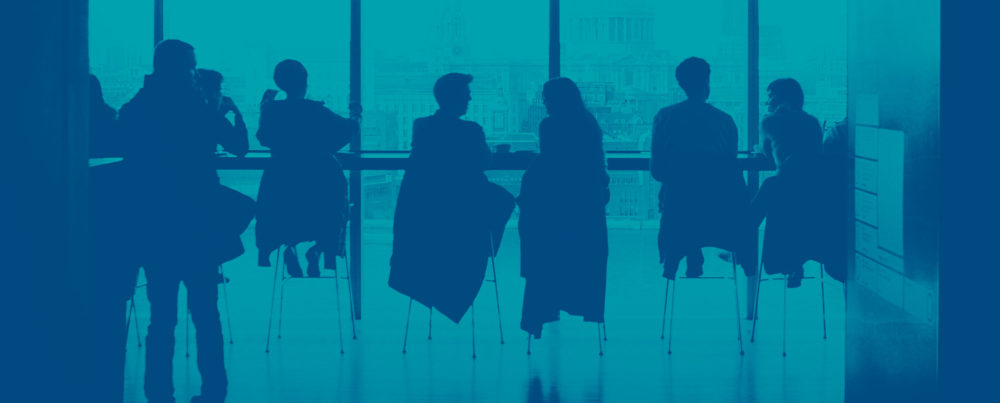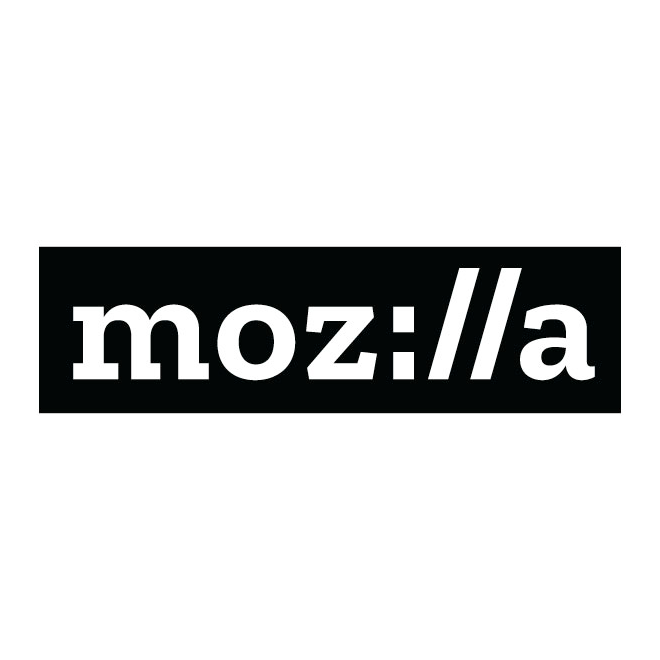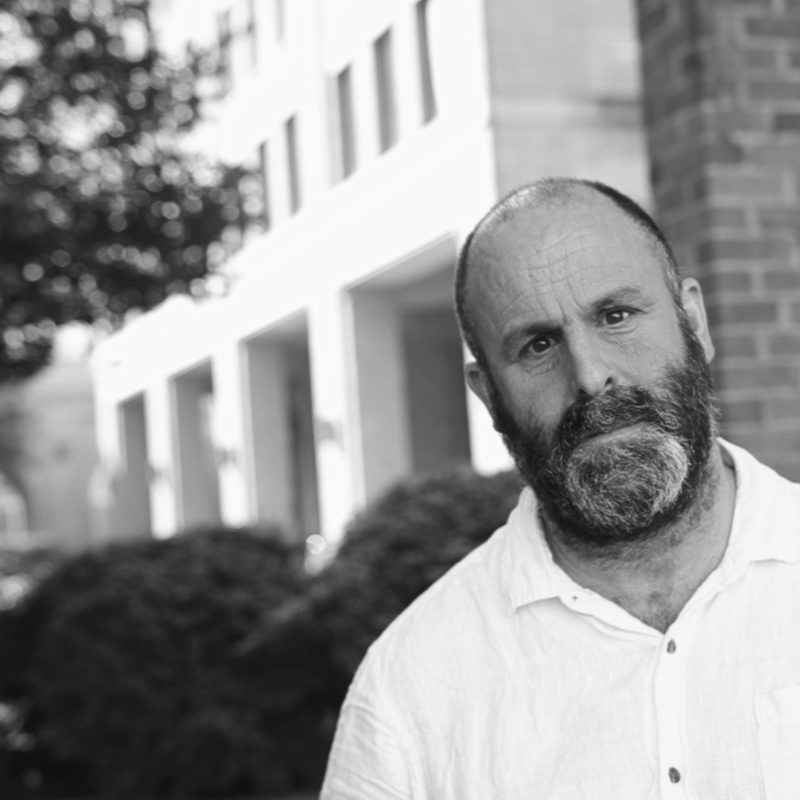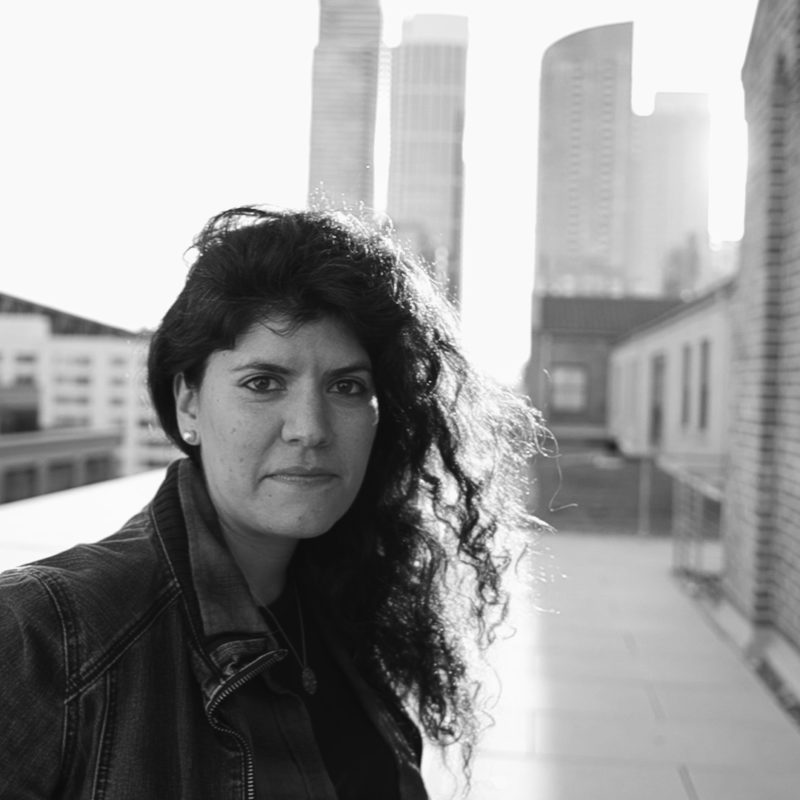These technologists, activists, and scientists will spend the next 10 to 12 months creating a more secure, inclusive, and decentralized internet
A neuroscientist building open-source hardware. A competition expert studying net neutrality enforcement in Nigeria. A technologist studying tools that combat disinformation.
These are just three of Mozilla’s latest Fellows — 25 technologists, activists, and scientists from more than 10 countries. Today, we’re announcing our 2018-2019 cohort of Fellows, who begin work on September 1, 2018.
Over the next 10 to 12 months, these Fellows will conduct research, create products, and build communities. In past cohorts, Mozilla Fellows have built secure platforms for LGBTQ individuals in the Middle East; leveraged open-source data and tools to bolster biomedical research across the African continent; and raised awareness about invasive online tracking.
More than ever, we need a movement to ensure the internet remains a force for good. Mozilla Fellows work on the front lines of that movement. Fellows develop new thinking on how to address emerging threats and challenges facing a healthy internet.
Learn more about Mozilla Fellowships, then meet our 2018-2019 Mozilla Fellows below (those fellows who are embedded at host organizations are funded through a joint Mozilla-Ford Foundation investment):
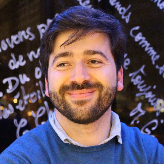 André Maia Chagas | UK | As a Mozilla Fellow, Andre will be working on Open Hardware for science, in order to try and map which laboratory equipments are most used and which are lacking across working groups, institutions, and non-academic spaces. Once the mapping is complete, he wants to select one piece of equipment and build it open and collaboratively. He also wants to create tutorials about the basic components of the designs, so that they can be used as starting points for other projects. With this approach, he is hoping to increase access to scientific equipment, allowing institutions and communities to follow their own scientific interests. Before joining Mozilla, Andre worked at the Baden Lab in the University of Sussex, collaborating with Trend in Africa by organizing and executing workshops around Open Source Hardware. He was also maintaining Open Neuroscience, a repository for OS projects related to neuroscience.
André Maia Chagas | UK | As a Mozilla Fellow, Andre will be working on Open Hardware for science, in order to try and map which laboratory equipments are most used and which are lacking across working groups, institutions, and non-academic spaces. Once the mapping is complete, he wants to select one piece of equipment and build it open and collaboratively. He also wants to create tutorials about the basic components of the designs, so that they can be used as starting points for other projects. With this approach, he is hoping to increase access to scientific equipment, allowing institutions and communities to follow their own scientific interests. Before joining Mozilla, Andre worked at the Baden Lab in the University of Sussex, collaborating with Trend in Africa by organizing and executing workshops around Open Source Hardware. He was also maintaining Open Neuroscience, a repository for OS projects related to neuroscience.
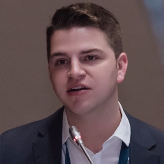 Ayden Férdeline | Germany | At Mozilla, Ayden Férdeline will be researching the ongoing development and harmonization of global privacy standards. He will work to develop an ambitious new toolkit for effectively operationalizing privacy protections online, identifying appropriate regulatory interventions that could incentivize data controllers to adopt higher privacy protections. He is currently a Councilor on the Council of the Generic Names Supporting Organization, the body which sets policy for generic top-level domain names like .com, where he represents the interests of non-commercial users and uses of the Domain Name System. Before joining Mozilla, Ayden Férdeline supported the Internet Society’s global public policy team and was a researcher for the data and analytics group YouGov. He has previously facilitated workshops at the United Nations Internet Governance Forum, United Nations World Summit on the Information Society, the European Dialogue on Internet Governance, and the Internet Freedom Festival. He is a graduate of the London School of Economics.
Ayden Férdeline | Germany | At Mozilla, Ayden Férdeline will be researching the ongoing development and harmonization of global privacy standards. He will work to develop an ambitious new toolkit for effectively operationalizing privacy protections online, identifying appropriate regulatory interventions that could incentivize data controllers to adopt higher privacy protections. He is currently a Councilor on the Council of the Generic Names Supporting Organization, the body which sets policy for generic top-level domain names like .com, where he represents the interests of non-commercial users and uses of the Domain Name System. Before joining Mozilla, Ayden Férdeline supported the Internet Society’s global public policy team and was a researcher for the data and analytics group YouGov. He has previously facilitated workshops at the United Nations Internet Governance Forum, United Nations World Summit on the Information Society, the European Dialogue on Internet Governance, and the Internet Freedom Festival. He is a graduate of the London School of Economics.
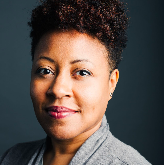 Kadija Ferryman | U.S. | As a Mozilla Fellow, Kadija Ferryman will be working on an ethnography and history of electronic health records in order to examine the potential and limits of the growing open health data movement. In addition to the Mozilla Fellowship, Kadija Ferryman is a Postdoctoral Scholar at Data & Society Research Institute in New York, and was a public policy researcher at the Urban Institute for six years. She earned degrees in anthropology from Yale (BA) and the New School for Social Research (PhD).
Kadija Ferryman | U.S. | As a Mozilla Fellow, Kadija Ferryman will be working on an ethnography and history of electronic health records in order to examine the potential and limits of the growing open health data movement. In addition to the Mozilla Fellowship, Kadija Ferryman is a Postdoctoral Scholar at Data & Society Research Institute in New York, and was a public policy researcher at the Urban Institute for six years. She earned degrees in anthropology from Yale (BA) and the New School for Social Research (PhD).
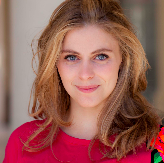 Camille Francois | U.S. | As a Mozilla Fellow, Camille will be working on online targeted threats and disinformation campaigns, exposing their impact on civil society and vulnerable users globally, and also trying to yield better detection and mitigation techniques. Camille will be researching the effects of dis/misinformation spread on specific platforms in countries that have elections in 2018-2019 aside from the U.S. She’ll be working with Mozilla communities worldwide to conduct her research, and will share her findings widely with the communities as well as with relevant stakeholders. Before joining Mozilla, Camille was the Principal Researcher at Google’s Jigsaw think tank. Camille is also an Affiliate at the Harvard-Klein Berkman Center for Technology & Society, and the Research & Analysis Director at Graphika.
Camille Francois | U.S. | As a Mozilla Fellow, Camille will be working on online targeted threats and disinformation campaigns, exposing their impact on civil society and vulnerable users globally, and also trying to yield better detection and mitigation techniques. Camille will be researching the effects of dis/misinformation spread on specific platforms in countries that have elections in 2018-2019 aside from the U.S. She’ll be working with Mozilla communities worldwide to conduct her research, and will share her findings widely with the communities as well as with relevant stakeholders. Before joining Mozilla, Camille was the Principal Researcher at Google’s Jigsaw think tank. Camille is also an Affiliate at the Harvard-Klein Berkman Center for Technology & Society, and the Research & Analysis Director at Graphika.
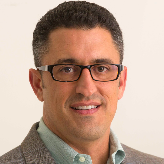 David Gehring | U.S. | As a Mozilla Fellow, David Gehring is focused on the economics of quality original news media publishing on the open web. He will be working on a plan to establish an open source user data standard and global data exchange. The goal is to empower users with an environment that provides user agency while at the same time improving the economic position for quality publishers on the open web. Prior to joining Mozilla, Gehring was an entrepreneur and the CEO of Relay Media, which he sold to Google in 2017. Before starting Relay Media, Gehring held various roles at Guardian Media Group, Google and YouTube.
David Gehring | U.S. | As a Mozilla Fellow, David Gehring is focused on the economics of quality original news media publishing on the open web. He will be working on a plan to establish an open source user data standard and global data exchange. The goal is to empower users with an environment that provides user agency while at the same time improving the economic position for quality publishers on the open web. Prior to joining Mozilla, Gehring was an entrepreneur and the CEO of Relay Media, which he sold to Google in 2017. Before starting Relay Media, Gehring held various roles at Guardian Media Group, Google and YouTube.
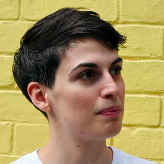 Maggie Haughey | Canada | Maggie is an activist and gamer concerned with issues of inclusion and safety online. Her work centers LGBTQ+ representation and intersectional feminism, and seeks to answer questions about how to create and maintain safer online spaces. In the past, Maggie has worked as a Game Master for her favorite MMO, created and moderated online LGBTQIA+ gaming communities, and organized nonhierarchical skillshares and cryptoparties in Montreal. As a Ford-Mozilla Fellow, Maggie will be working with the Tor Project to improve Tor’s accessibility, grow the Tor community, and advocate for the active inclusion of marginalized groups at all levels of the web.
Maggie Haughey | Canada | Maggie is an activist and gamer concerned with issues of inclusion and safety online. Her work centers LGBTQ+ representation and intersectional feminism, and seeks to answer questions about how to create and maintain safer online spaces. In the past, Maggie has worked as a Game Master for her favorite MMO, created and moderated online LGBTQIA+ gaming communities, and organized nonhierarchical skillshares and cryptoparties in Montreal. As a Ford-Mozilla Fellow, Maggie will be working with the Tor Project to improve Tor’s accessibility, grow the Tor community, and advocate for the active inclusion of marginalized groups at all levels of the web.
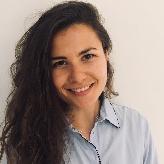 Gabriela Ivens | Germany | Gabi is an open-source investigator, working on new methods of locating, identifying, and securely preserving publicly available information for use in human rights investigations. As a Ford-Mozilla Fellow, Gabi will be working with the Tech+Advocacy team at WITNESS, where she will be working on issues around the safe, ethical, and effective use of video in documenting human rights violations. During the Fellowship, Gabi will be focusing on a number of areas including emerging technologies for human rights documentation and the effects of policy and engineering decisions by technology companies – such as content takedowns of information – that is, or could be, societally important. Gabi’s work will provide a greater level of understanding of the impact tech companies have on civil society and human rights defenders. Before becoming a Fellow, Gabi worked at Syrian Archive, a group working on preserving visual documentation of the Syrian conflict, and has been working on open source investigations since 2015. Gabi holds a master´s degree from University College London in Human Rights.
Gabriela Ivens | Germany | Gabi is an open-source investigator, working on new methods of locating, identifying, and securely preserving publicly available information for use in human rights investigations. As a Ford-Mozilla Fellow, Gabi will be working with the Tech+Advocacy team at WITNESS, where she will be working on issues around the safe, ethical, and effective use of video in documenting human rights violations. During the Fellowship, Gabi will be focusing on a number of areas including emerging technologies for human rights documentation and the effects of policy and engineering decisions by technology companies – such as content takedowns of information – that is, or could be, societally important. Gabi’s work will provide a greater level of understanding of the impact tech companies have on civil society and human rights defenders. Before becoming a Fellow, Gabi worked at Syrian Archive, a group working on preserving visual documentation of the Syrian conflict, and has been working on open source investigations since 2015. Gabi holds a master´s degree from University College London in Human Rights.
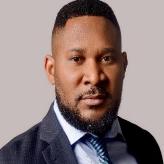 Chukwuyere Izuogu | Nigeria | As a Mozilla Fellow, Chukwuyere’s research work focuses firstly on the competition implication of non-enforcing net neutrality obligations, in order to emphasize the importance of net neutrality to competitive internet service markets in Nigeria. Secondly, his work focuses on the adequacy of the data protection regime in Nigeria, specifically in the context of the cross-border transfer of personal data acquired by online platforms from the EU to Nigeria. He will also recommend policy options and safeguards to mitigate existing data protection risks in Nigeria. Prior to joining Mozilla, Chukwuyere was a Research Fellow at the African Academy Network of Internet Policy and a Senior Counsel with the law firm of Streamsowers & Kóhn. Chukwuyere is the author of Regulating Anti-competitive Practices in Nigeria’s Communications Sector, (Wolf Legal Publishers, Netherlands, January 2017).
Chukwuyere Izuogu | Nigeria | As a Mozilla Fellow, Chukwuyere’s research work focuses firstly on the competition implication of non-enforcing net neutrality obligations, in order to emphasize the importance of net neutrality to competitive internet service markets in Nigeria. Secondly, his work focuses on the adequacy of the data protection regime in Nigeria, specifically in the context of the cross-border transfer of personal data acquired by online platforms from the EU to Nigeria. He will also recommend policy options and safeguards to mitigate existing data protection risks in Nigeria. Prior to joining Mozilla, Chukwuyere was a Research Fellow at the African Academy Network of Internet Policy and a Senior Counsel with the law firm of Streamsowers & Kóhn. Chukwuyere is the author of Regulating Anti-competitive Practices in Nigeria’s Communications Sector, (Wolf Legal Publishers, Netherlands, January 2017).
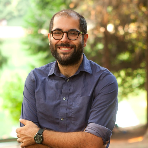 Darius Kazemi | U.S. | Darius Kazemi is delighted to join Ford-Mozilla to help Code for Science & Society figure out how to make the decentralized web more exciting and interesting. He’s hoping to make weird projects that can only really live on the decentralized web, and to build tools and tutorials to help other people make even better, weirder things. Darius is the co-founder of Feel Train, a worker-owned creative technology studio, and an artist making bots and web toys under the moniker Tiny Subversions.
Darius Kazemi | U.S. | Darius Kazemi is delighted to join Ford-Mozilla to help Code for Science & Society figure out how to make the decentralized web more exciting and interesting. He’s hoping to make weird projects that can only really live on the decentralized web, and to build tools and tutorials to help other people make even better, weirder things. Darius is the co-founder of Feel Train, a worker-owned creative technology studio, and an artist making bots and web toys under the moniker Tiny Subversions.
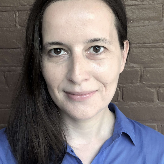 Stefania Koskova | Portugal | As a Mozilla Fellow, Stefania will be exploring strategies and tools to enhance collaboration between governments, civil society, and the private sector, leading to a better understanding and management of security risks associated with harmful online content, such as hate speech, terrorist propaganda, and disinformation, particularly in post-conflict societies. In her previous roles, Stefania assisted policymakers and communities in the Western Balkans with the design and implementation of strategic responses to hate, extremist radicalization, and violence. In 2017, Stefania helped launch the Resonant Voices Initiative, networking journalists, activists, and community leaders who challenge dangerous messages online, providing training and mentoring to counternarrative campaigns, and mapping online radicalization trends in the Western Balkans.
Stefania Koskova | Portugal | As a Mozilla Fellow, Stefania will be exploring strategies and tools to enhance collaboration between governments, civil society, and the private sector, leading to a better understanding and management of security risks associated with harmful online content, such as hate speech, terrorist propaganda, and disinformation, particularly in post-conflict societies. In her previous roles, Stefania assisted policymakers and communities in the Western Balkans with the design and implementation of strategic responses to hate, extremist radicalization, and violence. In 2017, Stefania helped launch the Resonant Voices Initiative, networking journalists, activists, and community leaders who challenge dangerous messages online, providing training and mentoring to counternarrative campaigns, and mapping online radicalization trends in the Western Balkans.
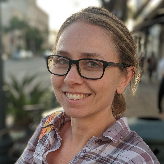 Julia Lowndes | U.S. | As a Mozilla Fellow, Julia Lowndes will be working to increase the value and practice of open data science within ecology and environmental science by empowering researchers with existing tools and communities. Julia has been working in this space for over five years through the Ocean Health Index at the National Center for Ecological Analysis and Synthesis (NCEAS). As science program lead, Julia helped the Ocean Health Index become a visible leader of open, reproducible, and collaborative practices for science and management through building a community of practice and communicating the team’s path to better science in less time. She earned her PhD in Biology at Stanford University and is a co-founder of Eco-Data-Science and R-Ladies Santa Barbara.
Julia Lowndes | U.S. | As a Mozilla Fellow, Julia Lowndes will be working to increase the value and practice of open data science within ecology and environmental science by empowering researchers with existing tools and communities. Julia has been working in this space for over five years through the Ocean Health Index at the National Center for Ecological Analysis and Synthesis (NCEAS). As science program lead, Julia helped the Ocean Health Index become a visible leader of open, reproducible, and collaborative practices for science and management through building a community of practice and communicating the team’s path to better science in less time. She earned her PhD in Biology at Stanford University and is a co-founder of Eco-Data-Science and R-Ladies Santa Barbara.
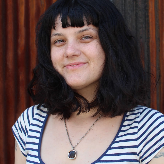 Ciera Martinez | U.S. | As a Mozilla Fellow, Ciera Martinez will be focusing on the practice of reproducibility when using genomics and natural history data. Her and her collaborators will be surveying databases to identify tools and strategies that will help increase the visibility, usability, and reproducibility of this data. She is also currently a Postdoctoral researcher in Michael Eisen’s lab at Berkeley and a Fellow at the Berkeley Institute of Data Science.
Ciera Martinez | U.S. | As a Mozilla Fellow, Ciera Martinez will be focusing on the practice of reproducibility when using genomics and natural history data. Her and her collaborators will be surveying databases to identify tools and strategies that will help increase the visibility, usability, and reproducibility of this data. She is also currently a Postdoctoral researcher in Michael Eisen’s lab at Berkeley and a Fellow at the Berkeley Institute of Data Science.
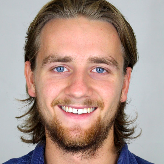 Alexander Morley | UK | For his Mozilla Fellowship, Alex will be working on developing resources around the idea of “Continuous Research.” While more and more data accumulates, and more ways to analyze it are developed, it is time to turn to automated solutions for comparing and integrating research. Alex sees this not only as an opportunity to innovate, and combat reproducibility concerns, but also that it should be a way to take down some of the barriers to participation in research. He will be working on all this from his lab at the MRC Brain Network Dynamics Unit in the University of Oxford, where he is currently a PhD candidate.
Alexander Morley | UK | For his Mozilla Fellowship, Alex will be working on developing resources around the idea of “Continuous Research.” While more and more data accumulates, and more ways to analyze it are developed, it is time to turn to automated solutions for comparing and integrating research. Alex sees this not only as an opportunity to innovate, and combat reproducibility concerns, but also that it should be a way to take down some of the barriers to participation in research. He will be working on all this from his lab at the MRC Brain Network Dynamics Unit in the University of Oxford, where he is currently a PhD candidate.
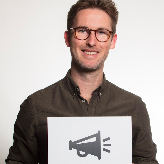 Sam Muirhead | New Zealand | As a Ford-Mozilla Fellow, Sam Muirhead will be working on an open source approach to the production and adaptation of illustration, comics, and animation. The aim is to support international activist networks running digital campaigns in diverse cultural contexts — enabling local chapters to speak with their own creative voice, while building solidarity and sharing resources across the network. In 2012, Sam lived an experimental Year of Open Source, then helped kickstart a global network around the idea of an Open Source Circular Economy. Since 2016 he has been developing a methodology for co-creating and customizing open source animation, and running ‘Cut, Copy & Paste‘ workshops that give non-coders an experience of open source collaboration, without using digital tools.
Sam Muirhead | New Zealand | As a Ford-Mozilla Fellow, Sam Muirhead will be working on an open source approach to the production and adaptation of illustration, comics, and animation. The aim is to support international activist networks running digital campaigns in diverse cultural contexts — enabling local chapters to speak with their own creative voice, while building solidarity and sharing resources across the network. In 2012, Sam lived an experimental Year of Open Source, then helped kickstart a global network around the idea of an Open Source Circular Economy. Since 2016 he has been developing a methodology for co-creating and customizing open source animation, and running ‘Cut, Copy & Paste‘ workshops that give non-coders an experience of open source collaboration, without using digital tools.
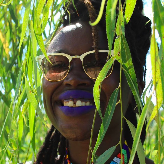 Selina Musuta | U.S. | Selina is a web developer and infosec practitioner that is inspired daily by speculative fiction, music, and her people’s ability to survive and thrive. She has dedicated 15 years to community development work in Washington, DC through media justice organizing and community-led research, as well as radio and event production. Selina has collaborated with a number of social justice and capacity-building organizations like Wellstone Action and the Center for Media Justice. As a Ford-Mozilla Fellow, she will support the ongoing privacy and security work of Consumer Reports.
Selina Musuta | U.S. | Selina is a web developer and infosec practitioner that is inspired daily by speculative fiction, music, and her people’s ability to survive and thrive. She has dedicated 15 years to community development work in Washington, DC through media justice organizing and community-led research, as well as radio and event production. Selina has collaborated with a number of social justice and capacity-building organizations like Wellstone Action and the Center for Media Justice. As a Ford-Mozilla Fellow, she will support the ongoing privacy and security work of Consumer Reports.
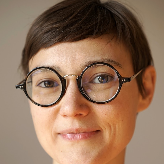 Valentina Pavel | UK | Valentina is a digital rights advocate working on privacy, freedom of speech, and open culture. As a Ford-Mozilla Fellow, Valentina will investigate the implications of digital feudalism and will explore different visions for shared data ownership. Shouldn’t we all be able to own and use the data that we’re collectively feeding into the online empires that run our digital lives? Shouldn’t this pooled data be placed back into the commons so it can empower new key infrastructure services? Valentina’s challenge will be to understand how the dominant tech companies are shaping the current socio-economical environment and seek new ways in which we can change the status quo for our shared benefit.
Valentina Pavel | UK | Valentina is a digital rights advocate working on privacy, freedom of speech, and open culture. As a Ford-Mozilla Fellow, Valentina will investigate the implications of digital feudalism and will explore different visions for shared data ownership. Shouldn’t we all be able to own and use the data that we’re collectively feeding into the online empires that run our digital lives? Shouldn’t this pooled data be placed back into the commons so it can empower new key infrastructure services? Valentina’s challenge will be to understand how the dominant tech companies are shaping the current socio-economical environment and seek new ways in which we can change the status quo for our shared benefit.
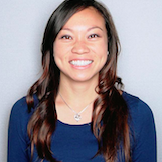 Kathy Pham | U.S. | Kathy Pham is a computer scientist, product leader, and serial founder who has held roles in product management, software engineering, data science, people operations, and leadership in the private, non-profit, and public sector. Her work has spanned Google, IBM, Harris Healthcare Solutions, and the federal government at the United States Digital Service at the White House, where she was a founding product and engineering member. She is the founder of the Women in Product Boston, the Cancer Sidekick Foundation, Team Curious, and Unite for Sight southeast. Kathy serves on the advisory boards of the Anita Borg Institute and the “Make the Breast Pump Not Suck” initiative. She also advises startups, conferences, and non-profits on hiring, building teams, and community inclusion.
Kathy Pham | U.S. | Kathy Pham is a computer scientist, product leader, and serial founder who has held roles in product management, software engineering, data science, people operations, and leadership in the private, non-profit, and public sector. Her work has spanned Google, IBM, Harris Healthcare Solutions, and the federal government at the United States Digital Service at the White House, where she was a founding product and engineering member. She is the founder of the Women in Product Boston, the Cancer Sidekick Foundation, Team Curious, and Unite for Sight southeast. Kathy serves on the advisory boards of the Anita Borg Institute and the “Make the Breast Pump Not Suck” initiative. She also advises startups, conferences, and non-profits on hiring, building teams, and community inclusion.
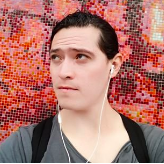 Phi Requiem | Mexico | As a Ford-Mozilla Fellow, Phi will be working with journalists, collectives, and activists in Latin America and the Caribbean who are at heightened risk of being attacked in terms of digital security. He is finding and developing more mechanisms and tools to improve freedom of speech and human rights defense. Before joining Mozilla, Phi was a digital security consultant, developer, and data specialist working side-by-side with several NGOs in Mexico and Central America.
Phi Requiem | Mexico | As a Ford-Mozilla Fellow, Phi will be working with journalists, collectives, and activists in Latin America and the Caribbean who are at heightened risk of being attacked in terms of digital security. He is finding and developing more mechanisms and tools to improve freedom of speech and human rights defense. Before joining Mozilla, Phi was a digital security consultant, developer, and data specialist working side-by-side with several NGOs in Mexico and Central America.
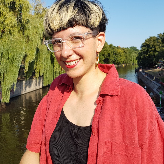 Maya Richman | Germany | Maya is a security trainer and practitioner for social change organizations and activists. As a Ford-Mozilla fellow, she will work alongside the Astraea Lesbian Foundation for Justice to explore and support the security needs of LGBTQI groups around the world. During her Fellowship, Maya will document the unique approaches and tactics that LGBTQI employ to survive and thrive in growing oppressive contexts. Prior to joining Mozilla, Maya worked at The Engine Room facilitating spaces for organizations, groups, and individuals around the world to share their experiences and improve their collective security and emotional well-being. She previously studied computer science, hacker politics, and open source culture at McGill University.
Maya Richman | Germany | Maya is a security trainer and practitioner for social change organizations and activists. As a Ford-Mozilla fellow, she will work alongside the Astraea Lesbian Foundation for Justice to explore and support the security needs of LGBTQI groups around the world. During her Fellowship, Maya will document the unique approaches and tactics that LGBTQI employ to survive and thrive in growing oppressive contexts. Prior to joining Mozilla, Maya worked at The Engine Room facilitating spaces for organizations, groups, and individuals around the world to share their experiences and improve their collective security and emotional well-being. She previously studied computer science, hacker politics, and open source culture at McGill University.
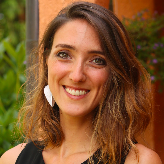 Daniela Saderi | U.S. | Daniela is a neuroscience PhD candidate and community organizer passionate about bringing open practices into the world of academia as a means to improve reproducibility and collaboration. Her PhD research combines in vivo electrophysiology, behavior, and computational modeling to understand how sound is processed in the dynamic brain. She is planning to defend her PhD thesis in the Fall of 2018. As a Mozilla Fellow, Daniela will be working on a project she co-founded less than a year ago called PREreview, an open platform and community to facilitate the collaborative writing of preprint reviews and the training of early-career researchers in scientific peer review. Through this work, she hopes to foster a broader and much needed cultural change in the way science is evaluated and disseminated.
Daniela Saderi | U.S. | Daniela is a neuroscience PhD candidate and community organizer passionate about bringing open practices into the world of academia as a means to improve reproducibility and collaboration. Her PhD research combines in vivo electrophysiology, behavior, and computational modeling to understand how sound is processed in the dynamic brain. She is planning to defend her PhD thesis in the Fall of 2018. As a Mozilla Fellow, Daniela will be working on a project she co-founded less than a year ago called PREreview, an open platform and community to facilitate the collaborative writing of preprint reviews and the training of early-career researchers in scientific peer review. Through this work, she hopes to foster a broader and much needed cultural change in the way science is evaluated and disseminated.
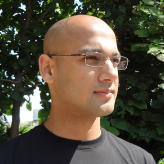 Sukhbir Singh | Canada | Sukhbir has a background in the design, development, and advocacy of privacy-enhancing technologies. As a Ford-Mozilla Fellow, he will work with the Wikimedia Foundation to further its mission of free and open access to knowledge for everyone. Before joining Mozilla, he was a developer with the Tor Project on the applications and community team.
Sukhbir Singh | Canada | Sukhbir has a background in the design, development, and advocacy of privacy-enhancing technologies. As a Ford-Mozilla Fellow, he will work with the Wikimedia Foundation to further its mission of free and open access to knowledge for everyone. Before joining Mozilla, he was a developer with the Tor Project on the applications and community team.
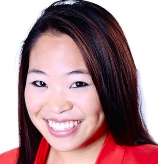 Clara Tsao | U.S. | This fall as a Mozilla Fellow, Clara Tsao will be working on evaluating the effectiveness of online tools that have been developed to counter terrorist propaganda/disinformation, with the goal of evaluating the impact of tools mapped to terms of service and content enforcement policy. As Chief Technology Officer of the US Government’s Countering Violent Extremism Task Force, Clara has focused on products, partnerships, and policy focused on homegrown radicalization online and terrorist exploitation of the internet. She has also previously started companies and non-profits, worked at Microsoft, AT&T, and also at Google as a Technology Policy Fellow.
Clara Tsao | U.S. | This fall as a Mozilla Fellow, Clara Tsao will be working on evaluating the effectiveness of online tools that have been developed to counter terrorist propaganda/disinformation, with the goal of evaluating the impact of tools mapped to terms of service and content enforcement policy. As Chief Technology Officer of the US Government’s Countering Violent Extremism Task Force, Clara has focused on products, partnerships, and policy focused on homegrown radicalization online and terrorist exploitation of the internet. She has also previously started companies and non-profits, worked at Microsoft, AT&T, and also at Google as a Technology Policy Fellow.
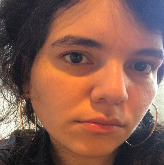 Danae Valentina | The Netherlands | Danae Valentina is a feminist working-class writer born in Chile and currently living in Rotterdam. She is a postgraduate research student at Utrecht University where she investigates the intersection between technologies and altered states of the mind using a posthumanist approach. As a Ford-Mozilla Fellow, Danae will be exploring the topic of transculturality and its digital implications through direct work with migrant communities in Latin America and in Europe. Before joining Mozilla, Danae worked as a project manager for digital rights organizations in Chile and in Brazil. She is a proud member of the Riseup Collective.
Danae Valentina | The Netherlands | Danae Valentina is a feminist working-class writer born in Chile and currently living in Rotterdam. She is a postgraduate research student at Utrecht University where she investigates the intersection between technologies and altered states of the mind using a posthumanist approach. As a Ford-Mozilla Fellow, Danae will be exploring the topic of transculturality and its digital implications through direct work with migrant communities in Latin America and in Europe. Before joining Mozilla, Danae worked as a project manager for digital rights organizations in Chile and in Brazil. She is a proud member of the Riseup Collective.
 Richard Whitt | U.S. | As a Mozilla Fellow, Richard will be spending the next twelve months developing his “openness by design” project. Through research, authorship, and convenings, Richard seeks to deepen and broaden our understanding of the key role played by the concept of openness across the different tech modalities. He also will be developing and implementing various ways to advocate for more tech sector openness. Before joining Mozilla, Richard spent over 11 years at Google, where he most recently worked with Vint Cerf on a variety of tech and corporate policy projects for emerging platforms.
Richard Whitt | U.S. | As a Mozilla Fellow, Richard will be spending the next twelve months developing his “openness by design” project. Through research, authorship, and convenings, Richard seeks to deepen and broaden our understanding of the key role played by the concept of openness across the different tech modalities. He also will be developing and implementing various ways to advocate for more tech sector openness. Before joining Mozilla, Richard spent over 11 years at Google, where he most recently worked with Vint Cerf on a variety of tech and corporate policy projects for emerging platforms.
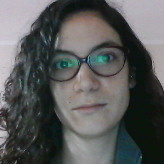 Bruna Zanolli | Brazil | As a Ford-Mozilla Fellow, Bruna Zanolli will be working on implementing, managing, and documenting community networks experiences lead by Artigo 19 Brazil. She aims to solve the problem of lack of access, and to optimize ways of communicating and exchanging experiences/ideas/struggles within a community. Bruna has been an activist in the area of autonomous communications and human rights with experience in the implementation and maintenance of autonomous networks. She acts as an infrastructure and content creation technique using free software on free radios in Brazil and in network with other countries in Latin America. She holds a Masters degree in Communication from MediaLab at UFRJ where she explored intersectional feminist experiences on the radio spectrum.
Bruna Zanolli | Brazil | As a Ford-Mozilla Fellow, Bruna Zanolli will be working on implementing, managing, and documenting community networks experiences lead by Artigo 19 Brazil. She aims to solve the problem of lack of access, and to optimize ways of communicating and exchanging experiences/ideas/struggles within a community. Bruna has been an activist in the area of autonomous communications and human rights with experience in the implementation and maintenance of autonomous networks. She acts as an infrastructure and content creation technique using free software on free radios in Brazil and in network with other countries in Latin America. She holds a Masters degree in Communication from MediaLab at UFRJ where she explored intersectional feminist experiences on the radio spectrum.
These new 25 Fellows will be joining our current Fellows:
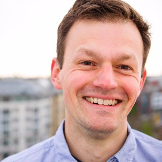
Peter Bihr | Germany | Peter is researching what a trustmark for ethical and responsible IoT could look like. He’s going to be prototyping this for voice-enabled connected products first, and then take it from there. Before Mozilla, Peter co-founded ThingsCon, a non-profit that fosters the creation of a human-centric and responsible Internet of Things. He also founded The Waving Cat, a boutique research and strategy firm that explores the impact of emerging tech, with a focus on IoT. Also, he kickstarted the ultimate travel pants.
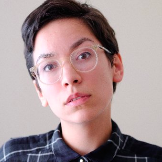
Julia Kloiber | Germany | Julia is investigating emerging technologies and their influence on society. During her fellowship she is researching how technologies and policies have to be shaped in order to support us in tackling future challenges. She will run campaigns, work on tech and develop new narratives. Julia co-founded the Prototype Fund — a funding program for open source prototypes that has set out to make receiving grants unbureaucratic and easy. In the past couple of years she’s been running multiple projects that foster the reuse of open data and promote transparency — like the civic tech network Code for Germany. Her frustration with the lack of diversity in tech and women in leadership positions has led her to start Superrr, an international community of women* in the arts, in science, tech, journalism, activism, and more.
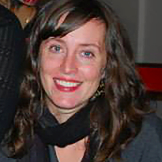
Meghan McDermott | U.S. | Meghan is prototyping the creation of an Internet Health Report at the municipal level in partnership with New York City. Since joining Mozilla in 2015, Meghan has worked across the Foundation to direct digital learning and leadership, ranging from the Hive Learning Networks to digital privacy initiatives for vulnerable communities. Guiding her work is a deep belief in the power of communities and people to make change. Her Fellowship is an exciting extension of her previous work.
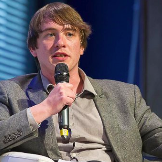
Thomas Lohninger | Austria | Since the beginning of the European Union’s talks about net neutrality, Thomas has been an active party to the conversations. With the most recent rounds in 2016, it was made clear that there are still loopholes in the regulation, which a few telcos are taking advantage of in specific member states. As a Fellow, Thomas works to enforce the existing net neutrality legislation through tactics like litigation, research, and networking. Before his fellowship, Thomas was Executive Director of the digital rights NGO epicenter.works in Vienna, Austria. The Center of Internet and Society of the Stanford Law School holds him as a non-residential fellow. And he worked in Brussels on the European Net Neutrality regulation as Policy Advisor for European Digital Rights. Thomas’ background is in IT and Cultural- and Social Anthropology. Thomas will be working from Vienna, with frequent travel around the EU.
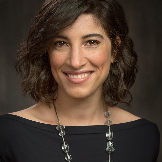
Renée DiResta | U.S. | Renée will be working closely with the Mozilla Open Innovation team to explore how we can address dis- and misinformation online. She’ll help Mozilla advance the understanding of misinformation and information quality by convening and working with platforms, researchers, and the public to develop a shared understanding and availability of reliable information about the problem. Renée will be building on some of Philip Smith‘s work from 2017, including advising on MisInfoCon and waving the banner of the Mozilla Information Trust Initiative (MITI).
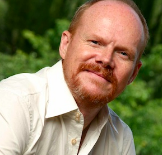
Steve Song | Canada | Steve’s work focuses on (1) identifying regulatory and policy barriers associated with connecting the unconnected to the full diversity of the open internet, (2) promoting the viability and proliferation of Equal Rating compliant models, and (3) helping Mozilla build a strategy for longer term involvement and leadership in this space — for Mozilla and the network. Steve, is the founder of Village Telco, an enterprise that builds low-cost WiFi mesh VoIP technologies to deliver affordable voice and Internet service in under-serviced areas. He is an experienced African Telecoms and Development Analyst with over 20 years of experience in the application of information and communication technologies to address development challenges. One of his particular strengths is his ability to communicate technical concepts to non-expert audiences.
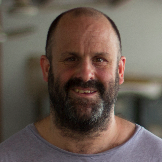
Jon Rogers | Germany | As a Mozilla Fellow, Jon’s work explores the human intersection between digital technologies and the design of physical of things. As Mozilla supports people working to build a more humane digital world, Jon is helping develop the Open IoT Studio, a project that explores the intersection between internet health and the challenge of emerging technologies. Watch Jon’s letter to the internet to learn more about his work so far.
